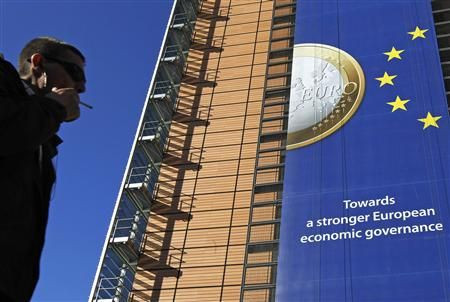Euro Zone Annual Budget Deficit Down, But Debt Up In 2011

The 17-member euro zone managed to reduce its combined annual budget deficit to 4.1 percent of the gross domestic product in 2011, down from 6.2 percent in the previous year, the European Union's statistics office said Monday, but overall debt increased to 87.2 percent of GDP from 85.3 percent.
The figures underscore the difficulties in the path to Eurozone economic recovery. The EU target of 3 percent deficit and 60 percent of debt to GDP is still a faraway goal.
We're in a debt crisis. Eurozone countries have way too much debt. We have gorged on debt. We are living beyond our means. And after 10 years of booming economic times, it is now payback time, Louise Cooper, a leading London financial analyst, told CBS News earlier this month.
Ireland reported the largest deficit of 13.1 percent, which includes over $7 billion used in 2010 for restructuring as part of $89-billion package of loans from the International Monetary Fund and the EU approved in 2010 to bail out Irish banks.
Eurostat is expressing a specific reservation on the data reported by Ireland, due to the fact that the restructuring plans of Allied Irish Banks and Irish Life & Permanent are not yet finalized, said the Eurostat report. Eurostat awaits the finalization of the restructuring plans, including approval by the EU competition authorities, so that the amount of the capital transfer element can be confirmed.
Without including the bank bailouts, Ireland's 2010 deficit would still be the highest in the EU at 9.4 percent.
Of the eurozone countries, Greece came in second with a deficit of 9.1 percent, followed by Spain (8.5 percent) and Slovenia (6.4 percent). The UK, which doesn't use the euro, had the EU's fourth-highest deficit of 8.3 percent in the year ended March 31. Seven of the 17 eurozone states have debt-to-GDP that exceeds 80 percent, including four whose debts are higher than their annual GDP.
A report earlier this month by Richard Hoey, chief economist at BNY Mellon, said that while European Central Banks's long-term bank refinancing operation did not address the underlying problem in the eurozone it did stave off an economic collapse.
Our view is that European financial stresses have shifted from the acute stage to the chronic stage, said the report. We expect alternating waves of concern and relief with respect to financial risk in Europe, but do not expect a return to a European financial crisis anywhere near as severe as occurred last year.
© Copyright IBTimes 2024. All rights reserved.




















